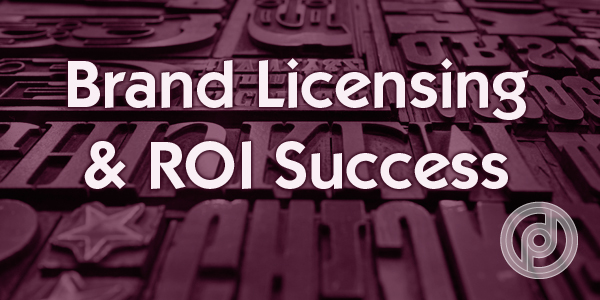
Brand Licensing Success Stories, Six Brands and How they Did it
Making Brand Licensing Work for Your Business to Increase Profits
Brand licensing can be a smart, resource-effective way to grow both your brand reach, impact and revenues quickly and profitably. But it can be difficult to find the right licensing agreement. As you may well be familiar with both from the business news and your personal experience as a consumer, licensees can drain time and brand image from a company if the relationship is not well selected and well managed.
Fortunately, there is a well-trodden path to successful brand licensing. Here we’re sharing six different stories of successful brand licensing strategies so you can apply key lessons learned relevant to your business.
Making Brand Licensing work for Both Sides: Monopoly
Monopoly is a very successful board game. But the usage scenario for board games is limited – typically they’re social games and require an hour or two of leisure time. This is not unlike a lot of brands which have built a strong following and enviable brand equity, but may find that their opportunities for expansion are limited by their market segment.
Related: Strategic Brand Partnerships, Does My Brand Look Big in This?
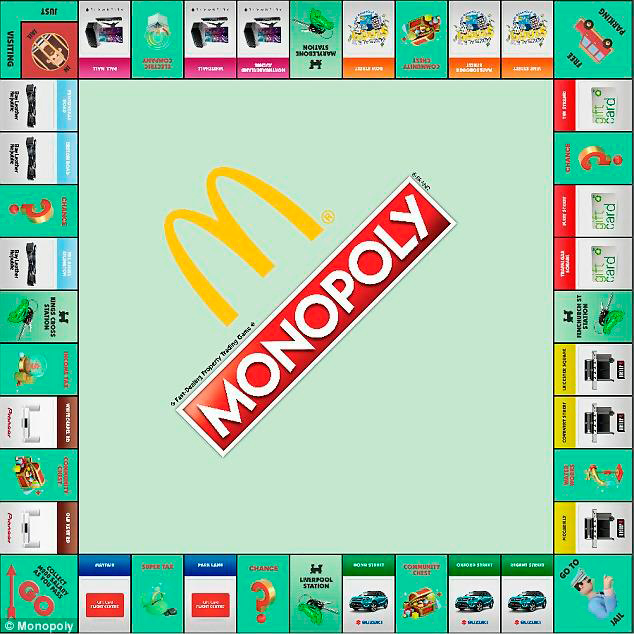
Image via Daily Mail ©Monopoly and ©McDonalds
Borrowing elements of the brand equity, Monopoly partnered with fast food giant McDonald’s and so enabled the board game brand to be brought to life in an instant win promotion. This brand licensing collaboration has been so successful that it has been repeated many times, over several decades. What started initially as an American promotion has been replicated successfully multiple times over in many different markets across the globe.
What is especially impressive about particular brand licensing strategy is how it works as a win win for both brands. For Monopoly’s brand owners, they have received and continue to get lots of exposure in a moment where they otherwise would not have any presence.
For McDonalds, the promotional mechanic is understood without having to educate consumers, who already understand Monopoly. As customers buy multiple items to increase their chances of winning, it leads directly to a sales uplift [1]. Plus, because many of the prizes are McDonald’s products, not only is the perceived value greater than the cost of provision, the promotion also enables the company to drive trial of new or underperforming menu items.
In the decades since its launch and early advertising like this video, the brand licensing mechanic has changed little and continues to be a brand licensing success story for Monopoly’s brand owners.
We know that sometimes it’s a struggle to build a strong brand strategy that really engages your ideal customers effectively so we’ve developed three different ways of working with us to help you build your brand and increase your sales, depending on your preferences, so if you’d like us to:
- Build your brand for you – find out more here or get in touch [email protected] or ring +353 1 8322724?
- Empower you to build your brand – check out the Persona Brand Building Blueprint™ Mastermind here. This is a two-day intensive where you work on your brand with us codifying and mapping out your agile branding strategy, underpinned by professional big-brand know-how, for 7-figure business growth. Alternatively, join our half-day Branding Accelerator Masterclass for a fast-injection of brand building essentials. Ask about our Personal and Corporate Leadership Brand Alignment Masterclass
- Want a DIY solution? Check out our how to build a brand eprogramme here and our how to audit your brand yourself eprogramme here
Using Local Expertise in Non-Core Markets for Brand Licensing: TopShop
Often there will be demand for a company’s products or services outside its home market. Even as consumers we see this, bringing home from foreign holidays items that we like but are hard to find at home. However, for a business to set up in non-core markets can consume management time and resources, for uncertain reward. Sometimes it may be impossible, for reasons from regulation to capacity constraints.
Whether it is a geographical market or a different distribution channel within your existing market, licensing can solve these challenges very effectively. It can be a way to work with an organization which already has the knowledge, contacts and experience to make a brand work in a new market.
Related: How To Use Brand Ambassadors To Open New Revenue Channels
A common example is food retail brands with large followings in their own market. Where there is a large expat community, or locals who value the brand, they can do well in other countries. But the economics of a supply chain do not make sense for just a handful of shops. Licensing the brand to a local company with market expertise allows the brand to be monetized with limited risk, as with Top Shop.
TopShop is a success story in its home market of the U.K., where its combination of cutting edge styles with affordable price points has helped it stand out in a crowded market. There is often overseas demand for fashion brands, but shipping them adds expense and time, both of which undercut some of TopShop’s brand promise.
Related: Want Your Customers to be Loyal, Super, Raving Fans? What’s Your Brand Promise?
As with many apparel brands, brand licensing makes good sense for TopShop. They can tap into local expertise and retail knowledge without the financial risk and time involved in setting up shop themselves. Instead, they can focus on building their brand to help drive demand.
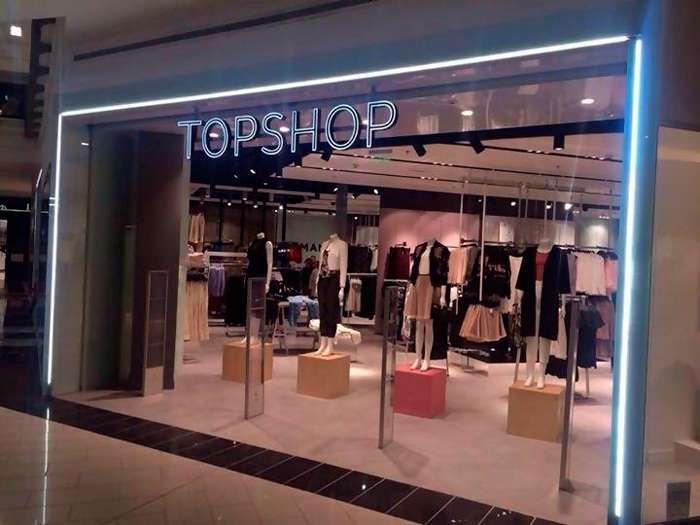
Image via Twitter ©Topshop
Are you a business leader, manager or entrepreneur who wants to re-evaluate or build your brand strategy so you can effectively benefit from opportunities such as brand licensing? Are you curious about how to build or scale a highly successful standout brand? Join one of our branding programmes because they empower you to build your brand, enhance customer experience, expand your market impact and create higher perceived value so you can command a premium.
In fact, the Persona Brand Building Blueprint™ Mastermind is all about fast-tracking you, your brand and your business through the brand building, agile branding strategy process using professional big-brand know-how with proven systems that get results so you can grow your business faster and more effectively.
This programme enables you to make your brand highly visible, different, credible, trustworthy, memorable and much loved amongst your ideal customers so you can become more profitable and leave your competitors way behind.
If you want a tailor-made solution specifically for your brand then we also provide inhouse bespoke Persona Brand Building Blueprint™ Intensives working with you and your team so you can grow your business faster and more profitably. Contact us to discover more [email protected] or +353 1 8322724
Getting Full Value from Strong Brand Licensing: Kellogg’s
Some brands are clearly valuable because of their deep emotional appeal. But the further a brand strays from its core areas of expertise, the more challenging it can be for its managers to execute the brand consistently and profitably. That is where brand licensing can play an important role, by enabling revenue streams without requiring active ongoing involvement from the brand owner.
Manchester United, like other top flight sports clubs, has turned this into an art form, which is reflected in the high valuation given to their brand. Indeed, here at Persona Branding and Design we’ve helped the GAA spread their own reach in a similar way, explained here.
But this is also true of food brands who want to get their logo out on t-shirts and other clothing, like Kellogg’s iconic cartoon characters such as Snap, Crackle and Pop. They spend a lot of time and energy developing such characters, which thanks to ubiquitous advertising exposure over decades are often well-recognised and enjoy a cult following. Brand licensing is a way to help get some return on this investment without directly stepping outside of the company’s core business areas, as explained in this video.
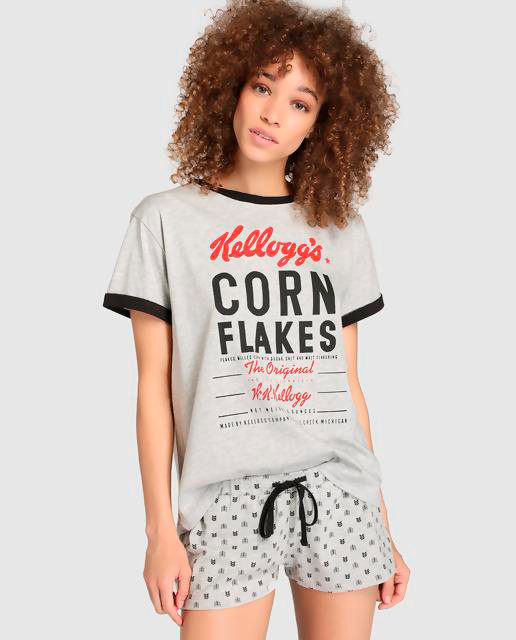
Image via El Corte Inglés ©Kellogg’s
Stretching a Brand with Baby Steps in Brand Licensing: Marmite
Sometimes brands want to see what adjacent areas they can move into, without necessarily taking the risk of a full launch. This can be as simple as an accounting firm offering some planning advice, or a coffee shop starting to sell food. It can stretch all the way to enormous decisions which require large scale expenditure. A licensing arrangement can be a smart way to do this, especially if it is for a limited time frame, such as a limited edition.
The iconic British food spread Marmite has done this by licensing its brand onto other products, such as savoury snacks. Even further out is chocolate gifting. Marmite licensed its name for Easter eggs. This is a smart way to get PR exposure for the brand, without cannibalizing any of the core business, and earning licensing royalties into the bargain. It is an imaginative yet valuable example of brand licensing, explained in this video.
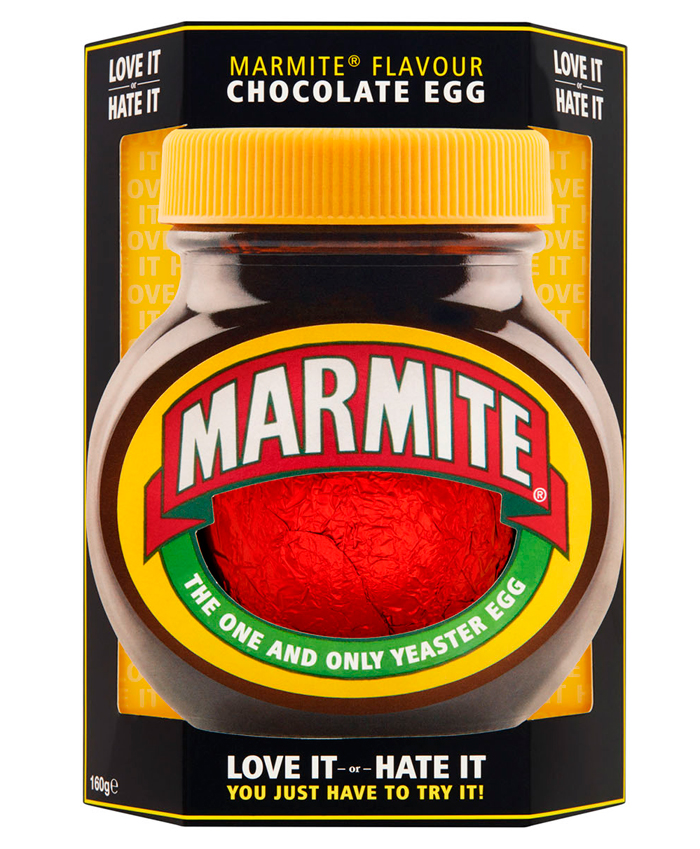
Image via Asda ©Marmite
Leveraging a Personal Brand with Brand Licensing: Mary Berry
Licensing can sound a bit scary, because for some people the word can conjure up images of team of lawyers sitting in intimidating conference rooms. But in fact, it is not only large brands who can do well from licensing. Individuals who are recognized in their field, whether by consumers or in a B2B context, can also extend their reach through licensing.
Related: 4 Myths About Branding That Will Forever Change Your Marketing Mindset
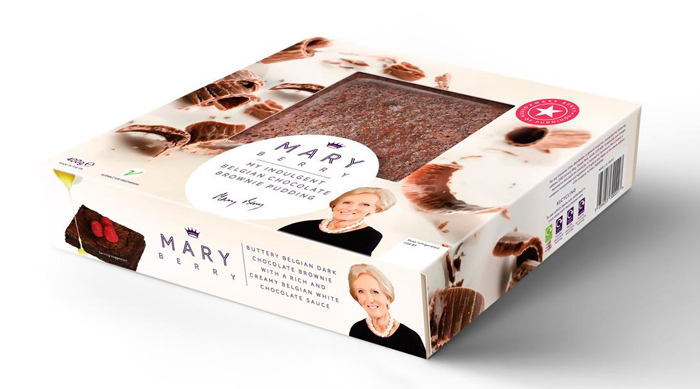
Image via Food Heaven ©Mary Berry
An illustrative case study on point is famed chef Mary Berry. Best known for her many decades of presenting cooking shows on television, her involvement in The Great British Bake Off has burnished her contemporary credentials as an expert in unpretentious, high quality home baking.
Related: How Your Personal Brand Can Benefit Your Business
She has lent her name to a line of manufactured cakes, so effectively added to her earnings without having to commit the time required compared to building and running the business oneself. Indeed, the Mary Berry brand is now being extended to other foodstuffs.[2]
Related: How to Use Influencers to Grow Your Brand and Open New Markets
This is an example of a personal brand benefitting from the widespread exposure which can be enabled by brand licensing.
If you’d like to discover more about building and maintaining a thriving, high performing, highly profitable standout brand, then get in touch because we’d love to help you make your brand and business into a profit powerhouse.
- Schedule an appointment — we can meet in person or online
- Allow us to create a customised plan for you
- Let’s implement the plan together
- Contact us [email protected] or ring +353 1 8322724 (GMT Dublin/London 9:00 – 17:30 weekdays)
Lorraine Carter is a branding expert and international speaker delivering talks that inspire and motivate along with masterclasses and seminars that inform and support transformational outcomes fast, and consultancy expertise that solves problems — using agile branding strategy underpinned by professional big-brand know-how — so you can outshine, outperform and leave your competitors way behind.
Using Local Expertise with Brand Licensing in Complex Markets: Electrolux
Sometimes, a company is large with deep pockets but still decides not to enter a potentially huge market. In large, developing markets it may well be that established local players offer better knowledge, access and capability. Sometimes this leads to a joint venture but brand licensing is a less financially onerous option for the brand.
A common example is the category of white goods. Although makers such as Electrolux are huge companies with well-established brand equity, the goods are heavy to transport and can be subject to protectionist trade policies. In many cases, therefore, it can make sense to team up with a company which has local manufacturing capability but would benefit from being associated with an established global brand name. This is the approach that companies such as Swedish white goods Electrolux have taken to entering the large but heavily regulated market of India. By licensing their brand name there, they build it locally and can reap defined financial rewards without needing to navigate the challenges of setting up a local heavy industrial operation.
Related: Build Your Brand Strategy So It Drives Your Growth and Punches Above Your Weight
Final Thoughts
It takes time and effort to build a brand. But as you build it, there are adjacent opportunities which could reward your effort even though they may seem difficult to realise. This is where brand licensing can sometimes play a role. It enables you to monetize your efforts and grow your brand footprint, without the financial risk or manpower that it usually requires when you do it directly. These success stories have shown how companies across different industries and of very different sizes have made brand licensing work for them. The question is, is it worth considering as a growth strategy for your business?
Questions to Consider
- Are there new areas your brand could succeed in, which are not easily accessible for your business directly?
- Who would find value in your brand outside of your existing customer base?
- What can your brand offer business partners such as licensees, as well as yourself?
- What is the smartest way to grow your business geographically?
- Which brand licensing success story seems most relevant to your brand, and why?
- Would a brand audit help you make more informed choices around your potential new brand strategy entailing brand licensing?
Your Persona Client Satisfaction Guarantee
- When you work with us, we’ll create a customised brand building plan and strategy with clear investment for you tailored to your specific requirements and preferences
- You’ll know each step of your brand building journey before we start because we’ll discuss it, document it and agree on it with you before work commences
- You’ll have timelines, key milestones and deliverables to evaluate and approve for each stage and part of your brand building process
- Because we know the unexpected sometimes happens we can make adjustments along the way if you need it and if something extra is requested we’ll ensure you’re fully appraised about what that entails before committing
- As we achieve pre-agreed objectives you’ll be able to evaluate your brand building work and strategy in progress, coupled with the outcomes to ensure return on investment
Get in touch today because we’d love to get started helping you build your standout, powerhouse brand so you can increase your profits and leave your competitors way behind.
Email us [email protected] or ring us +35318322724 (GMT 9:00-17:30) and ask about our VIP Brand Strategy Discovery.



